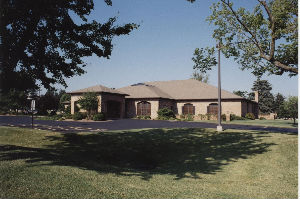Funeral Planning Guide
Planning for end-of-life arrangements is a compassionate act that grants you and your loved one’s peace of mind. Our team of professionals has over 80 years of combined experience in the funeral planning industry. We share a common goal: to guide you through every step with empathy and expertise. Millions of people visit our website each year, and thousands have trusted the After Me Planner for their funeral-planning needs. Whether you are pre-planning or arranging a funeral now, our free tools make the process simple and personalized. We have created a comprehensive library of up-to-date information to help you make responsible first steps toward designing a dignified farewell.
Our funeral planning pages provide clear, compassionate answers to common questions about arranging a funeral, planning a funeral in advance, and navigating the planning process. The list of links below highlight important pages of our website that have more details on specific areas that will be of interest to you. If you have a question that is not addressed on this page or in one of the links, please email us at support@funeralwise.com.
Funeral Planning: Your Complete Guide
Funeral Planning Advice and Tips
About Funeral Providers
Planning Resources
We understand that funeral planning means different things to different people. That’s why we cover a full range of topics. If you want a do-it-yourself funeral planner, check out our After Me Planner. We recommend you visit our Funeral Arrangements page if you have an immediate need.

Funeral Planning How-to's and Advice
A step-by-step guide to funeral planning and information on funeral costs and more
Check Out Our Funeral Planning Guide
Plan Your Funeral Before You Need It
Any time is a good time for funeral planning... except at the time of the funeral.
Learn About Funeral Preplanning
Funeral Homes and Funeral Directors
Learn what to expect when working with a funeral home (aka, mortuary) and funeral director.
Learn About Funeral HomesWhat is funeral planning?
Funeral planning is the process of making arrangements for a funeral or memorial service for yourself or to honor a deceased loved one. It involves making decisions about burial or cremation, the type of service (e.g., traditional, religious, or personalized), selecting the venue, casket or urn, music, readings, and other details. It also includes logistical aspects like budgeting, coordinating with funeral homes, and handling legal requirements such as death certificates or permits.
Why is funeral planning important?
The best time to plan a funeral is before you need it. Planning allows you to create a meaningful tribute that truly reflects the life, values, and wishes of the deceased while helping to provide closure and comfort to those grieving. Funeral planning reduces the stress for the family of the deceased and ensures that your wishes are met. It can also help you manage costs.
What are the key steps in planning a funeral?
The key steps to planning a funeral are to:
1) Decide how the body will be handled (interment).
2) Select the type of service (funeral, memorial service, etc.).
3) Calculate the cost and budget.
4) Share your plan with your family
5) Arrange financing.
6) Organize your paperwork and personal information.
For more information on planning a funeral, visit our “How to Plan a Funeral” page.
Should I plan my funeral in advance?
Yes! When you preplan, you give a very generous gift to your loved ones: the freedom to begin their path through grief without the added emotional and financial stress of trying to decide what you would have wanted.
How long does it take to plan a funeral?
The time it takes to plan a funeral varies depending on the type of funeral you have in mind. You will need to make a lot of decisions, and the complexity of the service will determine how many details you must arrange. If you are collaborating with others, it can take some time to come to an agreement on the details. In general, a straightforward traditional funeral with a viewing typically takes one to two weeks.
If you are planning well in advance, the availability of the funeral home you select will probably not be a factor. If the person has already passed, their schedule will affect the timing. You will also have to consider the travel arrangements for family coming from out of town. Another factor that can influence the timing is religious and cultural requirements. Some cultures require burial within 24 hours. Others include a multi-day ritual.
For more details on making funeral arrangements, visit our Arrangements page.









